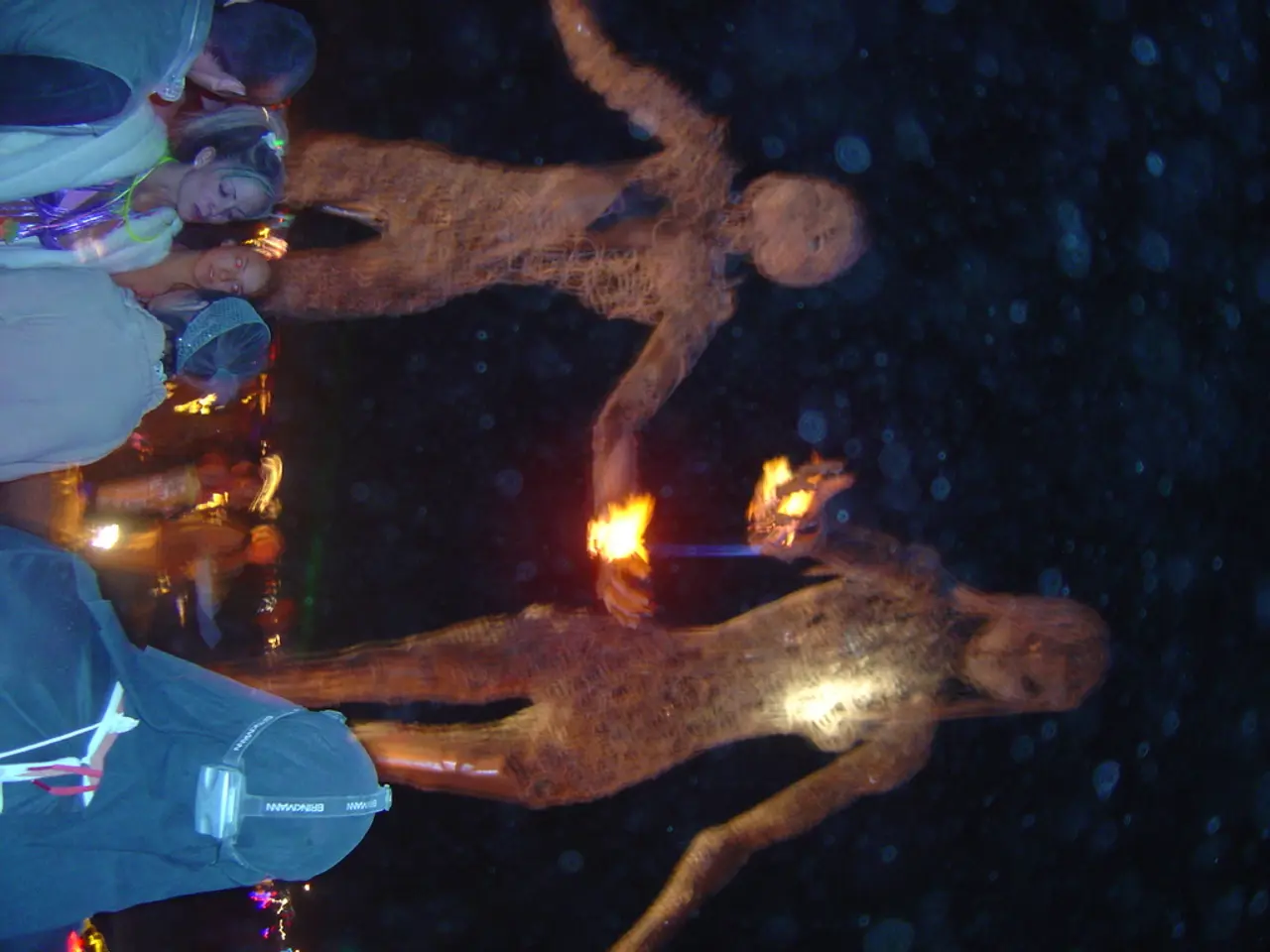Unexplained burning sensations following urination may not always be linked to bacterial infections. Here are six potential non-infectious causes:
Urinary Tract Infections (UTIs) are a common health concern, but they can also be a symptom of other underlying conditions in men. Here are five less common causes of UTI symptoms in men, each with distinct characteristics and treatment options.
1. **Urethral Stricture Disease**
Urethral strictures, caused by scar tissue narrowing the urethra, can result in symptoms similar to UTIs, such as painful urination, frequency, and urgency. Although not an infection, strictures can cause stasis and incomplete bladder emptying, predisposing to recurrent infections. Diagnosis often requires urethroscopy or retrograde urethrography.
2. **Painful Bladder Syndrome / Interstitial Cystitis (PBS/IC)**
PBS or IC presents with bladder pain, urinary frequency, urgency, and sometimes nocturia, symptoms closely resembling UTIs but without bacterial infection. It is caused by bladder wall inflammation, possibly involving immune cell activation, with no definitive bacterial cause present. Symptoms may worsen with bladder filling and improve after voiding.
3. **Prostatitis**
Prostatitis refers to inflammation of the prostate gland, which may cause urinary symptoms such as frequency, urgency, dysuria, pelvic pain, and fever. Acute bacterial prostatitis can present with positive urine cultures and infection signs, but chronic prostatitis/chronic pelvic pain syndrome may have recurrent UTI-like symptoms without a clear bacterial infection.
4. **Kidney Stones and Bladder Stones**
Stones in the urinary tract can lead to irritation, obstruction, and secondary infection, causing symptoms similar to UTIs such as pain, frequency, urgency, and sometimes hematuria. Stones can be associated with benign prostatic hyperplasia causing bladder outlet obstruction, which predisposes to infections and UTI-like symptoms. Imaging such as ultrasound or CT scan can identify calculi, which require specific treatment.
5. **Other Possible Causes**
Other possible causes of UTI-like symptoms in men include Benign Prostatic Hyperplasia (BPH) leading to bladder outlet obstruction and urinary retention, sexual activity-related irritation, use of certain contraceptives, dermatological conditions affecting the genital area, malignancies, or anatomical abnormalities in the urinary tract.
Treatment for the underlying cause of a burning feeling after peeing will vary depending on the diagnosis. For instance, treatment for bladder stones often involves crushing and removing them using a cystoscope, while prostatitis is typically treated with antibiotics for bacterial infections and pain medication for other causes.
If you experience a burning sensation when peeing for more than a few days, especially if accompanied by blood in the urine, a fever, or pain in the lower back, seek medical advice promptly. The United Kingdom's National Health Service (NHS) notes that other symptoms of bladder stones include lower abdominal pain, blood in the urine, dark or cloudy urine, and frequent peeing. Bladder cancer can also cause a burning sensation when peeing, as well as blood in the urine, an increase in urinary frequency, and a sudden need to pee.
Older adults, children, and pregnant people should see a doctor if they have symptoms of a UTI. Most people will recover after treatment at home or with antibiotics. Some people experience repeated UTIs and may need to take regular medication.
- Urethral Structure Disease, characterized by scar tissue narrowing the urethra, can lead to symptoms similar to UTIs, despite not being an infection, due to potential stasis and incomplete bladder emptying.
- Painful Bladder Syndrome (PBS) or Interstitial Cystitis (IC), characterized by bladder pain, urinary frequency, urgency, and sometimes nocturia, resembles UTIs but lacks a bacterial infection, caused by bladder wall inflammation.
- Prostatitis, inflammation of the prostate gland, may cause urinary symptoms mimicking UTIs, such as frequency, urgency, dysuria, pelvic pain, and fever; acute bacterial prostatitis may have positive urine cultures, while chronic forms may not.
- Urinary tract stones can lead to irritation, obstruction, and secondary infection, resulting in symptoms similar to UTIs, including pain, frequency, urgency, and hematuria; calculi can also be associated with benign prostatic hyperplasia.
- Underlying conditions like Benign Prostatic Hyperplasia (BPH), sexual activity-related irritation, use of certain contraceptives, dermatological conditions affecting the genital area, malignancies, or anatomical abnormalities in the urinary tract can cause UTI-like symptoms in men.
- The treatment for a burning feeling after peeing will depend on the underlying diagnosis, such as for bladder stones, which usually require crushing and removal using a cystoscope, or for prostatitis, which is treated with antibiotics and pain medication.
- Men experiencing a burning sensation when peeing for more than a few days, accompanied by blood in the urine, fever, or pain in the lower back, should seek medical advice promptly, as these symptoms may indicate bladder stones, bladder cancer, or other health-and-wellness conditions like multiple medical conditions, including kidney stones, bipolar, and multiple depression.




